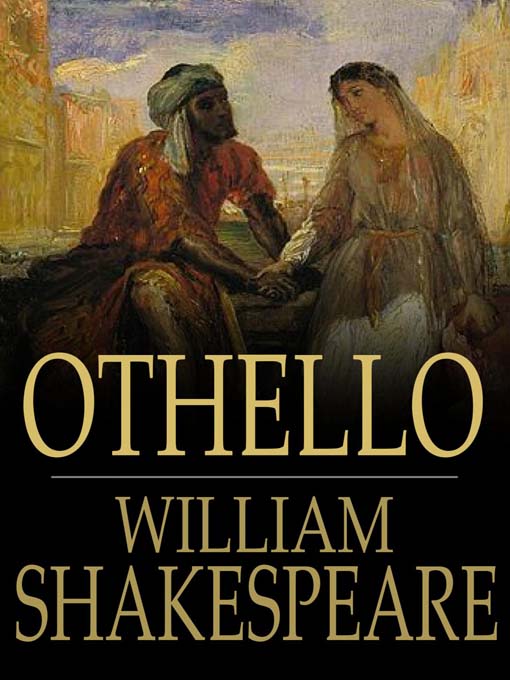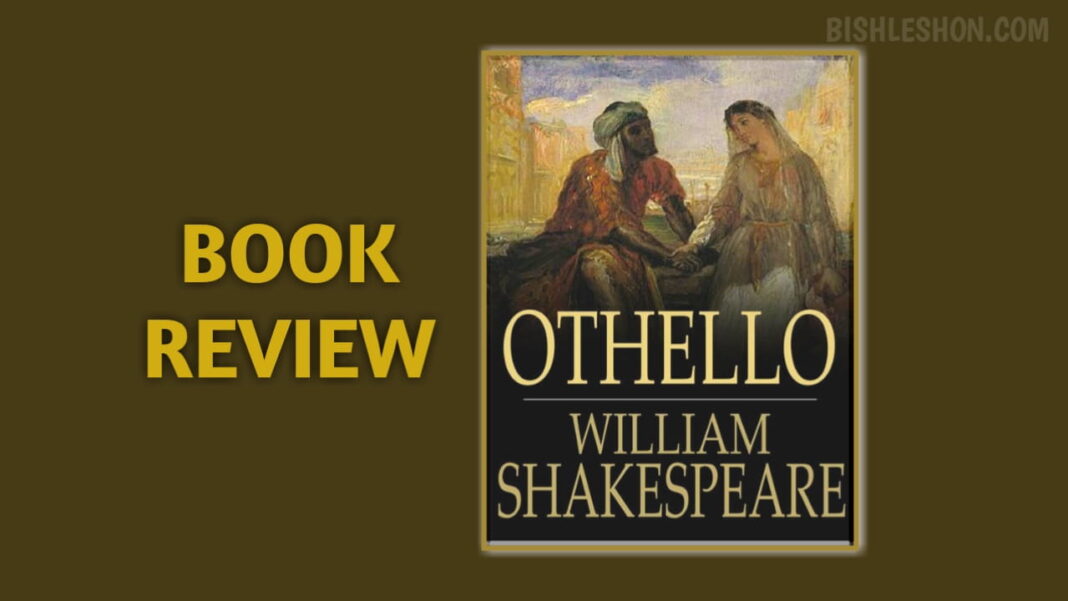Othello is a play written by William Shakespeare in 1603. Othello tells the story of Othello, a black general in the Venetian army, who is manipulated by his jealous and envious ensign, Iago, into believing that his wife, Desdemona, has been unfaithful. This leads to a tragic sequence of events, culminating in the deaths of several characters. Othello is widely considered to be one of Shakespeare’s greatest tragedies, and its themes of jealousy, betrayal, racism, and love continue to resonate with audiences today.
Book Review: “Othello” by Shakespeare
8 Major Characters in Othello
- Othello – A black general in the Venetian army who is manipulated by his ensign, Iago, into believing that his wife, Desdemona, has been unfaithful.
- Desdemona – Othello’s wife, a young and beautiful Venetian woman who is deeply in love with her husband.
- Iago – Othello’s ensign, who is jealous and resentful of Othello’s success and his marriage to Desdemona. He manipulates and deceives Othello to get revenge.
- Cassio – Othello’s lieutenant, who is falsely accused of having an affair with Desdemona by Iago.
- Roderigo – A wealthy Venetian who is in love with Desdemona and is being manipulated by Iago to further his own plans.
- Emilia – Iago’s wife and Desdemona’s attendant, who unwittingly becomes involved in Iago’s schemes.
- Brabantio – Desdemona’s father, a Venetian senator who disapproves of her marriage to Othello.
- Bianca – A courtesan who is in love with Cassio.
Plot and Characters
The play, Othello, opens with Roderigo, a wealthy Venetian, expressing his frustration with his unrequited love for Desdemona, the daughter of a Venetian senator. Roderigo is being manipulated by Iago, who promises to help him win Desdemona’s heart in exchange for money. Iago’s true intentions, however, are to use Roderigo’s money to further his own plans of revenge against Othello.
Othello has recently married Desdemona, and their relationship is the source of much envy and resentment from Iago. Iago convinces Othello that Desdemona has been unfaithful with Cassio, Othello’s lieutenant. Othello becomes consumed with jealousy and ultimately kills Desdemona, only to later discover that she was innocent.
The other characters in the Othello include Emilia, Iago’s wife and Desdemona’s attendant, who unwittingly becomes involved in Iago’s schemes; Brabantio, Desdemona’s father, who disapproves of her marriage to Othello; and Bianca, a courtesan who is in love with Cassio.
Themes and Symbolism
Jealousy is the central theme of Othello, and it drives the plot and characters’ actions. Shakespeare explores the destructive power of jealousy and the way it can consume and ultimately destroy people. The play also touches on themes of betrayal, racism, love, and the corrupting influence of power.
One of the most prominent symbols in the play is the handkerchief that Othello gives to Desdemona. This handkerchief is a symbol of their love, but it becomes a source of jealousy and suspicion when Iago uses it to convince Othello that Desdemona has given it to Cassio as a token of her affection.
Language and Style
William Shakespeare’s language in Othello is both beautiful and complex. The play is written in blank verse, which is a form of unrhymed iambic pentameter. This style of writing gives the play a rhythm and cadence that is both poetic and dramatic.
One of Shakespeare’s strengths as a writer is his ability to create characters with distinct voices and personalities. In Othello, each character speaks in a way that reflects their social class, education, and temperament. This creates a rich and diverse cast of characters that are both believable and memorable.
Critical Reception
Othello has been widely praised by critics and audiences alike for its exploration of complex themes and its powerful characters. It is considered one of Shakespeare’s greatest tragedies and has been studied and performed extensively throughout the world.

Some critics have raised concerns about the portrayal of race in the play, particularly Othello’s status as a black man in a white society. While some have argued that the play is racist in its depiction of Othello, others have praised
Shakespeare’s portrayal of a black character as a tragic hero, which was a rarity in literature at the time. The play also challenges societal norms and expectations, such as the notion of women as property or the acceptance of jealousy as a justified emotion.
Adaptations and Legacy
Othello has been adapted into various forms of media, including films, operas, and even a ballet. Some notable adaptations include the 1952 film “Othello” starring Orson Welles and the 1995 film “Othello” starring Laurence Fishburne.
The play’s themes and characters continue to inspire modern writers and artists. In particular, the character of Iago has become synonymous with manipulative and villainous behavior, and the play’s exploration of the dangers of jealousy has resonated with audiences for centuries.
10 Famous Quotes from Othello
- “O, beware, my lord, of jealousy; It is the green-eyed monster which doth mock the meat it feeds on.” – Iago (Act 3, Scene 3)
- “I am not what I am.” – Iago (Act 1, Scene 1)
- “She loved me for the dangers I had passed, and I loved her that she did pity them.” – Othello (Act 1, Scene 3)
- “But I will wear my heart upon my sleeve for daws to peck at: I am not what I am.” – Iago (Act 1, Scene 1)
- “Good name in man and woman, dear my lord, is the immediate jewel of their souls.” – Iago (Act 3, Scene 3)
- “When devils will the blackest sins put on, they do suggest at first with heavenly shows.” – Iago (Act 2, Scene 3)
- “I kissed thee ere I killed thee, no way but this, killing myself, to die upon a kiss.” – Othello (Act 5, Scene 2)
- “Reputation is an idle and most false imposition; oft got without merit and lost without deserving.” – Iago (Act 2, Scene 3)
- “Our bodies are our gardens, to which our wills are gardeners.” – Iago (Act 1, Scene 3)
- “Excellent wretch! Perdition catch my soul But I do love thee! And when I love thee not, Chaos is come again.” – Othello (Act 3, Scene 3)
Conclusion
In conclusion, Othello is a powerful and tragic play that explores complex themes of jealousy, betrayal, love, and racism. Shakespeare’s language and style create a rich and diverse cast of characters, and the play’s exploration of societal norms and expectations challenges the audience to think critically about their own beliefs and values. Despite some criticisms about its portrayal of race, Othello remains a timeless masterpiece that continues to inspire and captivate audiences today.



 For all latest articles, follow on Google News
For all latest articles, follow on Google News